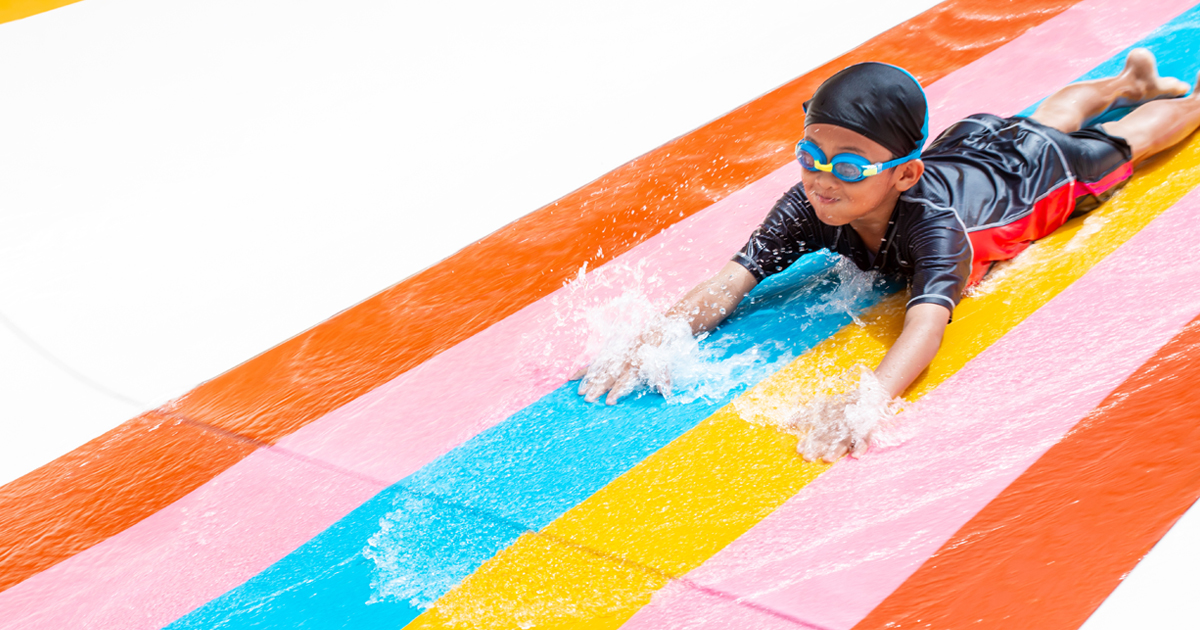How to Prevent Summer Slide: 4 Proactive Strategies for Parents

With summer break around the corner, you’ve probably started to plan some fun activities for the season. Visits to the community pool. Trips to a local amusement park and zoo. Fireworks. Festivals. A family vacation to your favorite beach.
It’s shaping up to be a successful summer! But while your kids will certainly enjoy zipping down water slides and slip and slides this season, there’s a far less enjoyable slide that they may also face—the summer slide.
But how do you keep kids learning without sacrificing the fun? Keep reading to learn how to prevent summer slide while still having an enjoyable break.
What is Summer Slide?
Also referred to as “summer learning loss” or “summer setback,” summer slide occurs when students regress academically while out of school for a long break.
Many students don’t practice or apply the skills they learned in the previous school year during summer break. And like all things you learn, be it a foreign language or mathematics skill, you lose it if you don’t use it. So, when students return to school, they’re typically at a lower academic level than before the break.
Research done by Harris Cooper, a professor of psychological sciences at the University of Missouri, revealed that the average student loses one month of learning each summer.
Studies have also shown that students lose 2 months of reading and 2.6 months of mathematics skills on average due to summer slide. As a result, many teachers must dedicate five to six weeks at the start of the school year to reteaching old content just to get their students back on grade level.
The good news is that summer learning loss can be minimized. By being proactive and setting aside time for educational summer activities, you can turn summer learning loss into summer brain gain!

How to Prevent Summer Slide While Still Having Fun
Combating summer slide doesn’t have to spoil your fun. It only takes two to three hours of educational activities each week to ward off a regression, and you certainly don’t have to rely on direct instruction or drill-and-kill practice to continue making gains.
There are plenty of ways to make learning fun, but we’re here to help you get started. Here are four summer learning loss prevention tips that’ll keep your kids learning (and loving it) all season long.
1. Get Reading
The easiest and most effective way to minimize a summer reading setback is to have your child read for at least 20 minutes per day.
For a successful reading experience, allow your child to choose books that spark interest rather than “assigning” books to them. You’ll want to ensure that the books they choose are appropriate for their age and reading level (i.e., not too easy and not too hard). If you need help, check out reading lists online or head to your public library for suggestions. Most public libraries even have summer reading programs with special challenges, group activities, events, and rewards for those who accomplish reading goals.
If your child struggles with reading skills, do family reading together! Ask them to read aloud to you and other family members, such as siblings or grandparents. Take time to discuss the book together and ask questions. This will help strengthen literacy skills like comprehension, fluency, vocabulary, and oral language skills.
To build reading time into your regular summer outings, consider taking books to the park or beach. Then, once your child finishes their 20 minutes of independent silent reading or read-aloud time, they can jump right up and play.
2. Practice Math Skills
While it’s typically a bit easier to get students reading during the summer months, getting your child to practice math skills can be much more challenging. This reality is likely why summer learning loss in mathematics is often more significant than that for reading.
But math practice can be fun too! Instead of pulling out the math facts sheets and flashcards, try some of these motivating math activities this summer:
- Card Games: Practice addition, subtraction, or multiplication facts while playing War.
- Water Balloons: Pick a division fact that your child struggles with (ex: 9s). Draw 13 circles in your driveway with a number 0–12. Then, make 13 water balloons with a division fact written on them (ex: 63 ÷ 9). Have your kiddo throw the water balloon at the target that contains the correct answer (ex: 7).
- Beach Ball: Write decimals on a beach ball and toss it around. Have them convert the decimal nearest to their right thumb into a fraction in the simplest form.
- Scavenger Hunt: Pick ten different geometric shapes and go on a geometry scavenger hunt to find all of them around your neighborhood.
- Math Apps: There are plenty of fun math apps and online programs that can help your child practice various skills, such as Khan Academy Kids, Math Doodles, and Splash Learn.

3. Explore Educational Attractions
Another great way to promote summer brain gain is to explore the educational attractions in your area. This can help provide context for topics your child learned about in the previous school year and build background knowledge for next year’s curriculum.
Educational trips also reinforce concepts to students in a hands-on way with real-world applications. For example, if your student recently learned about the solar system, visiting a local planetarium will take their knowledge further.
If you’re planning to go on a family vacation this summer, try to find something educational to see or do in the area, such as:
- Historical sites
- Geographical landmarks
- Museums
- Zoos or aquariums
Many museums and facilities around the world also offer virtual field trips, so you and your child could experience an educational tour without even having to travel far.
4. Encourage Creative Writing
A final strategy to keep kids learning this summer is simply to have them write. Don’t worry—we aren’t recommending that you assign any research papers or book reports. Instead, we suggest providing frequent opportunities for your child to write for fun.
A few times each week, set aside 15 minutes to have them pour out their words on a page. It can be in the form of a poem, play, personal narrative, story, or a response to a journal prompt that you provide. Here are a few ideas for inspiration:
- If summer was a person, what would he or she be like?
- Write a short story from the perspective of a seagull at the beach.
- What would you do if you were stuck at the zoo overnight?
- If you could travel anywhere in the world, where would you go and why?
- Write a poem about the ocean.
Having your child engage in these writing activities can enhance their writing skills, foster creativity, and improve their mental health. However, if you’d prefer a more structured approach to increasing your child’s writing abilities, we recommend checking out our interactive writing curriculum, WriteShop, for grades K–12.